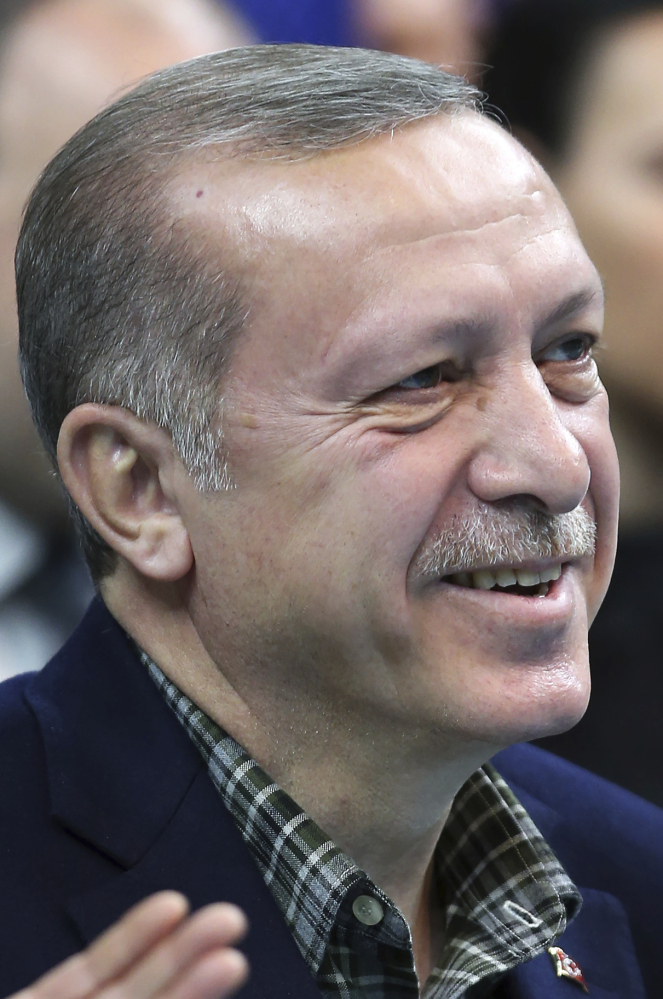AMSTERDAM — A diplomatic rift between Turkey and key European nations deepened Sunday as President Recep Tayyip Erdogan accused Germany of “Nazi practices,” days after a local authority prevented a Turkish minister from addressing a rally.
Over at an election campaign event in Amsterdam, meanwhile, Dutch right-wing populist Geert Wilders also resorted to extreme-right comparisons, calling Erdogan an “Islamo-fascist leader.”
The diplomatic tensions have been rising in recent days amid Turkish plans to have government ministers address rallies in Germany and the Netherlands in support of an upcoming constitutional referendum that would give Erdogan new powers.
Speaking in Istanbul, the Turkish president fanned the flames with a stinging verbal attack.
“In Germany, they are not allowing our friends to speak. Let them do so. Do you think that by not allowing them to speak the votes in Germany will come out ‘no’ instead of ‘yes?'” Erdogan said. “Germany, you don’t have anything to do with democracy. These current practices of yours are no different than the Nazi practices of the past.”
On Thursday, Turkey’s justice minister canceled a meeting with his German counterpart after local authorities in southwest Germany withdrew permission for him to use a venue to hold a rally near the French border that was part of a campaign to get Turks in Germany to vote “yes” in the referendum.
Turkey’s economy minister, Nihat Zeybekci, was due to speak at two events in western Germany on Sunday. There are about 1.4 million people in Germany who are eligible to vote in the Turkish referendum.
Julia Kloeckner, a deputy leader of Merkel’s Christian Democratic Union, told the German daily Bild that Erdogan’s Nazi comparison was “a new pinnacle of immoderation.”
“Mr. Erdogan is reacting like a stubborn child who can’t get his own way,” she told the paper.
Austrian Chancellor Christian Kern, in an interview with the German newspaper Welt am Sonntag, said it’s time to pull the plug on long-stalled moves to bring Turkey into the 28-nation European Union.
“We shouldn’t just temporarily suspend the accession talks with Turkey but end them,” Kern said. “We can’t continue to negotiate about membership with a country that has been steadily distancing itself for years, during ongoing access talks, from democratic standards and principles of the rule of law.”
Send questions/comments to the editors.



Success. Please wait for the page to reload. If the page does not reload within 5 seconds, please refresh the page.
Enter your email and password to access comments.
Hi, to comment on stories you must . This profile is in addition to your subscription and website login.
Already have a commenting profile? .
Invalid username/password.
Please check your email to confirm and complete your registration.
Only subscribers are eligible to post comments. Please subscribe or login first for digital access. Here’s why.
Use the form below to reset your password. When you've submitted your account email, we will send an email with a reset code.